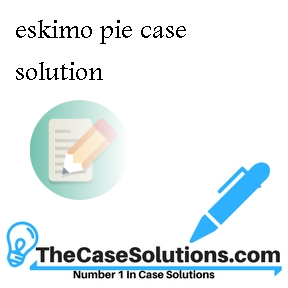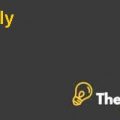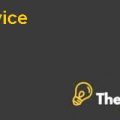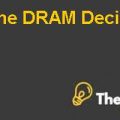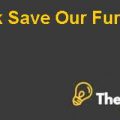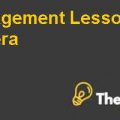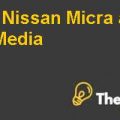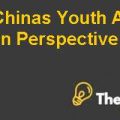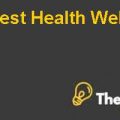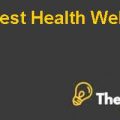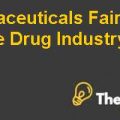Q1. Does Eskimo fit the profile of a firm that would be a good LBO candidate?
Reynold Metals is looking to sale out its holdings of Eskimo Pie Corporation. The company has identified two major options to do this. It can either sale out the company to Nestle for $ 61 million or it can go for an Initial Public Offering and sell the shares to general public. While considering the first option of selling Reynold’s share in Eskimo to another acquirer, the leverage buyout does seem to be a good alternative to do this. Eskimo Pie Corporation seems to be a good candidate for a leverage buyout.
A leverage buyout is basically the acquisition of a private or a publicly listed company with a significant level of borrowed debt. The basic characteristics which make Eskimo Pie Corporation a good candidate for the leverage buyout is that, Eskimo Pie Corporation currently has a low amount of debt in its capital structure. The current capital structure of the company’s standing in the year 1991, shows that there is only 4% of debt against 96% of equity in the company. Therefore, the company has the capacity to bear high debt levels. Apart from this, although Eskimo Pie was not financially successful but it had a strong management team. Apart from this, the company has steady cash flows and low working capital requirements. Only one problem here was that the business of Eskimo Pie was not an asset intensive. However, based on the above mentioned factors, Eskimo Pie Corporation could be considered as a good candidate for Leverage Buyout.
Q2. Value Eskimo – what price could they bring in an IPO?
The valuation of Eskimo Pie has been performed based on the free cash flow to equity method. The WACC has been calculated based on certain assumptions and calculations. The beta has been calculated for Dreyer’s because its product line and nature of business is much similar to that of Eskimo Pie. Apart from that all the calculations have been performed based on the information given in the case. Using 6% as the cost of capital, the enterprise value for the company has been calculated as $ 69322. Per share value for the company based on 3316 outstanding shares is $ 20.91 per share. This is the price per share which they should bring in the Initial Public Offering. This price reflects the future growth potential of the company. Refer to the excel sheet for calculations.
Q3. How can Eskimo convince Reynolds to do this instead of selling to nestle?
The price for the Initial Public Offering estimated by Wheat is in the range of $ 14 and $16 per share. However, the price that we have calculated based on the future projections of the company and its terminal value is around $ 20.91 per share. This is the price which should be offered in the initial public offering. Eskimo could convince Reynolds by telling them that at the price of $ 14 per share, Reynolds could make the same gains as by selling the share to Nestle. At the price of $ 16 per share the company was able to obtain more from the initial public offering than it would have achieved from the $ 61 million bid of Nestle. Therefore, if the company offers the price of $ 20.91 per share in the initial public offering, it would gain a lot for the company. Apart from that, Reynolds would also not lose the control of the management. Apart from this, the sale of Eskimo Pie by Reynolds would be made much easier without any further complications and negotiations. Besides this, Reynold in this way could save the jobs of the local community and get liquidity for itself. Reynolds should be convinced and the company should go for an initial public offering.........................
This is just a sample partial case solution. Please place the order on the website to order your own originally done case solution.
In early 1991, Reynolds Metals, manufacturers of aluminum products, has decided to sell its share of the Eskimo, marketing branded frozen novelties. Reynolds had an offer from Nestle to buy popsicle. However, Reynolds decided instead to make an initial public offering popsicle. "Hide
by Richard S. Ruback Source: Harvard Business School 15 pages. Publication Date: September 19, 2001. Prod. #: 202037-PDF-ENG

